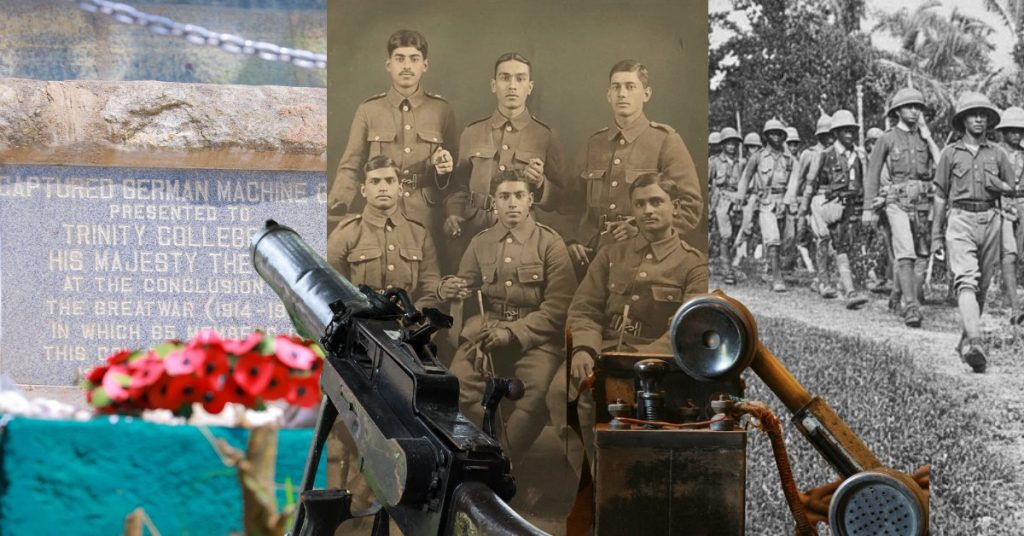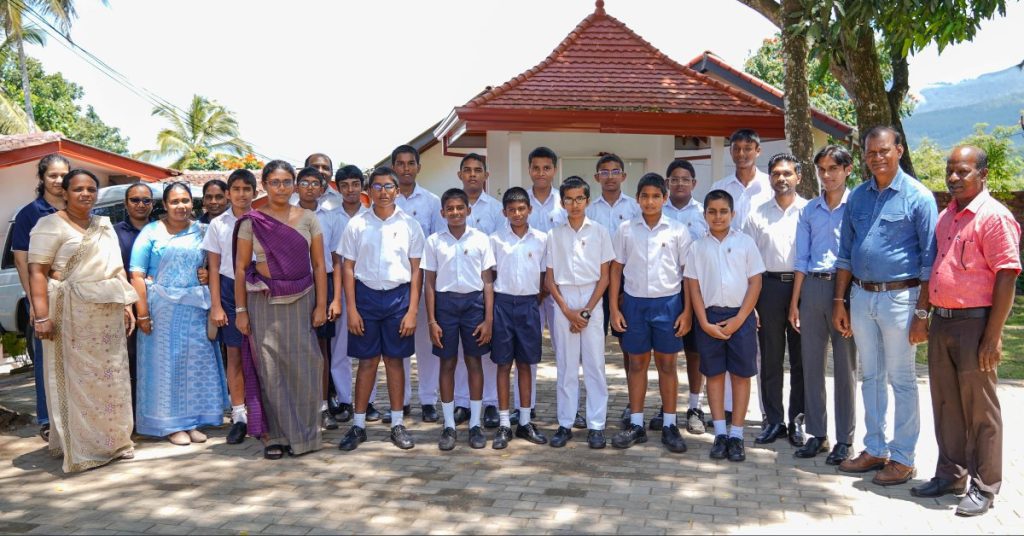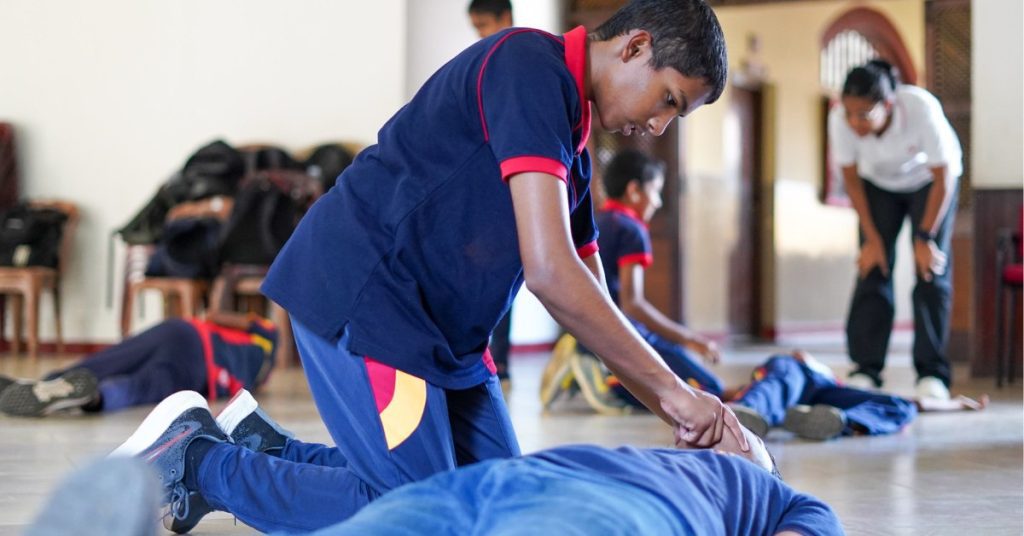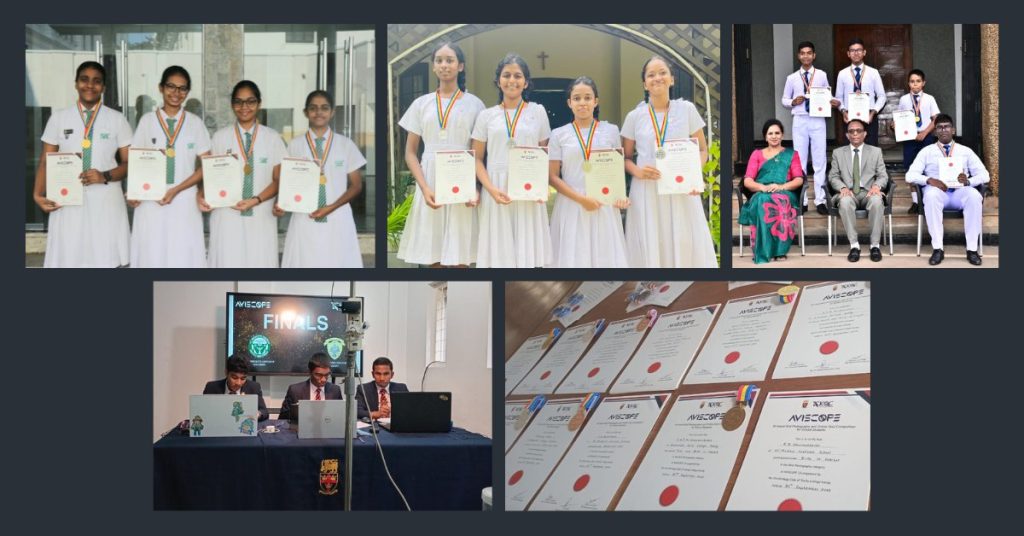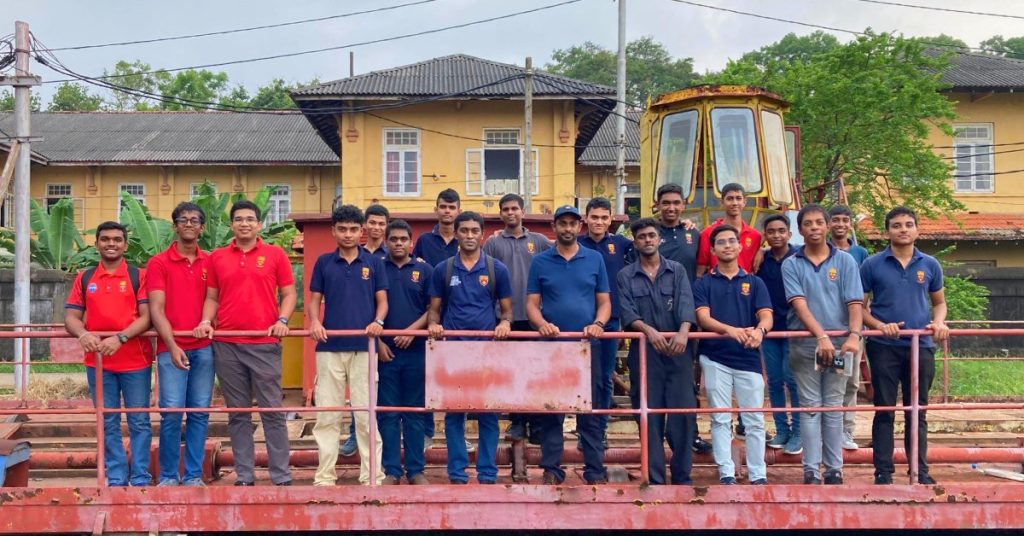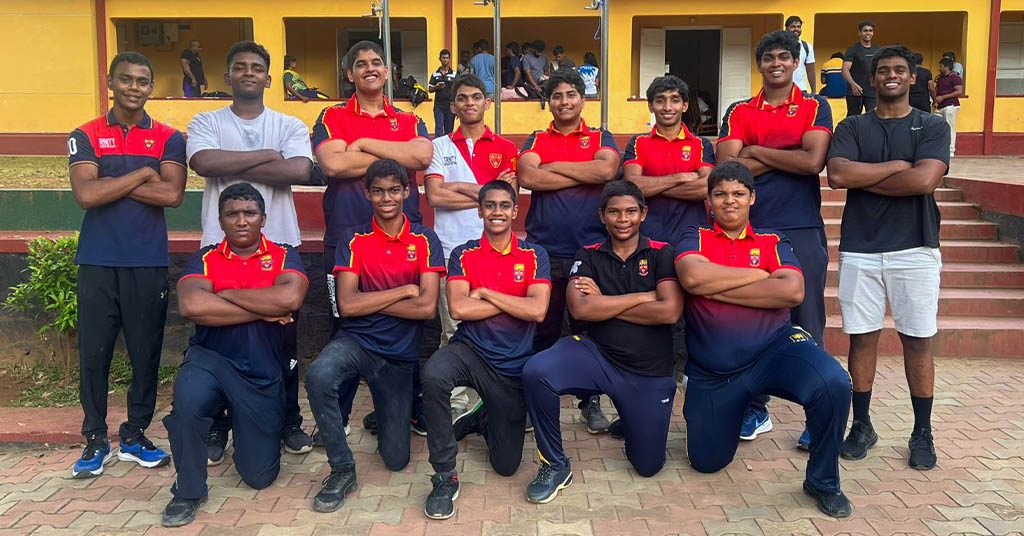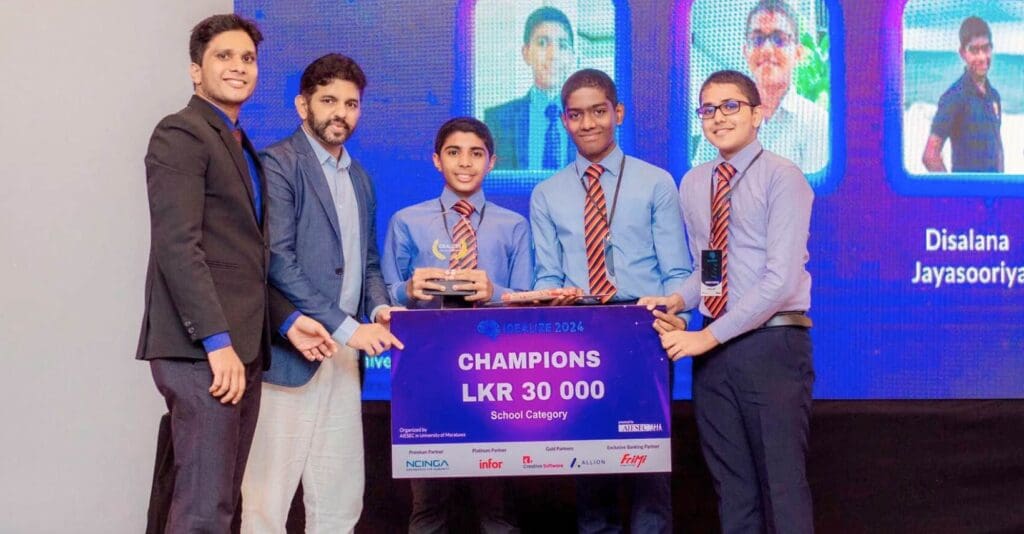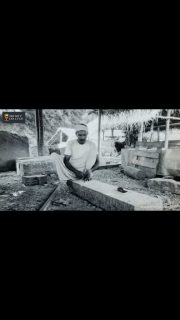Trinity College, Kandy
25th January 2018
London A Levels at Trinity
It has been interesting to see that there has been a lot of interest in Trinity’s initiative to introduce London A Level as an optional stream. Comments have ranged from Old Boys who wish that these qualifications had been available during their time at Trinity right through to some who wonder whether Trinity is about to become an International School (which it most certainly is not!).
Of course, people are entitled to their own views on whether they think London A Levels are worthwhile. My own view is that, for the right student, they are a good option to consider. For many, though, Local A Levels will remain the correct path. And these will continue to be offered at Trinity in exactly the same way as they are now (in Sinhala, Tamil and English mediums).
Surely, though, it can only be a good thing to increase the academic options available to students at Trinity, especially given the difficulty of getting a place at a local University. Nowadays, unlike in the past, some sort of Degree or Higher Education qualification is essential for almost any career. Just being a Trinitian is no longer enough to get a good job. It is our duty to make sure that our boys (and their parents) understand this and do what they can to maximize their academic potential. Introducing the chance for our boys to study London A Levels will help a number of them achieve that potential.
FAQs
I thought it would be sensible to answer a few FAQs on this subject, in order to clarify things for those people who want to know what is really happening:
1/ Are any other Local Schools in Sri Lanka offering London A Levels?
Whilst Trinity will be leading the way in Kandy, a number of leading schools in Colombo have been successfully offering London A Levels for years. These include S. Thomas’ (Mount Lavinia), Ladies’ College, St Peter’s, St Joseph’s, Musaeus and Bishop’s. All have details on their respective websites, if people are interested.
Actually, Trinity intended to start London A Levels a number of years ago; but for some reason, it did not get carried through. We even registered officially with Edexcel at that time.
2/ Will my son still be able to represent Trinity at sport if he is doing London A Levels?
Absolutely. There are no restrictions as to what is being studied at A Level as far as playing school sport is concerned. For a few sports, though, certain Local O Levels must have been passed.
3/ Will my son still be able to become a School Officer if he does London A Levels?
Certainly. Students choosing to do London A Levels are Trinitians. They are simply choosing to follow a different academic stream. We already offer a number of different streams for Local A Levels (eg Commerce, Physical Science etc) and in three different languages. There are already two Sections in the school for A Levels. This is just an additional one.
Trinity College is one school. So all Upper School students (whatever the stream) will wear the same uniform, attend the same Assemblies and Religious Meetings, take part in the same extra-curricular activities, and be subject to the same discipline and high expectations.
4/ Are London A Levels easier than Local A Levels?
No. I do not believe that they are. Intellectually, they are comparable. However, there is no doubt that the syllabus content is significantly smaller for London A Levels than Local ones, where the curriculum is absolutely huge for every subject. The big difference between the two, at least in most subjects, is that whilst the Local A Level teaching relies heavily on theory, dictation and rote-learning, the London A Levels require far more research, analysis and applied creativity from the student himself.
5/ Which subjects are available with London A Levels?
Actually, there are a very large number of subjects available in London A Levels. However, we will initially be offering the most popular subjects, including most of those being offered in the Local Stream. This includes Maths and the three Sciences; English Literature, History, Geography and ICT; and the Commerce Subjects. When and if there is the demand, we hope to introduce subjects like Psychology, French and Art&Design.
One real advantage of London A Levels, however, is the ability to choose an endless number of subject combinations, rather than being tied into one “Stream” as is the case in the Local system. Many boys at Trinity currently end up doing subjects at A Level which they may neither like nor be very good at. This does not need to happen in the London system, as students can focus on those subjects they are best at and enjoy most. And in a world where the job market is changing so fast, it is vital for our boys to focus on areas that excite them and where they can excel.
For example, an interesting combination like Maths, English Literature, History and Economics would not be possible in the Local system, but would be very appealing for many overseas Universities (eg for Law, Business Management or International Relations) as it shows both numeracy and analytical literacy. Or a combination of subjects like Biology, Geography, Chemistry and Psychology would look good on an application to study a degree such as Environmental Studies, Marine Biology or Anthropology. Although they may not yet be offered by Local Universities, these are highly respected degrees elsewhere in the world, and graduates in these subjects are very employable both globally and here in Sri Lanka.
6/ Why is Trinity doing Edexcel rather than Cambridge?
There are a number of reasons for this. In my view, both Edexcel and Cambridge are good, well-run and highly professional. I was at Cambridge myself, so have a natural bias towards them. And academically, for the majority of subjects (including Commerce, Arts and Humanities), there is very little difference between the two A Level Examination Boards. However, there is currently a significant difference in the Science subjects, with the Cambridge syllabus requiring far more practical work than Edexcel. This is something that students who have studied Local O Levels will not be very familiar with, so would potentially place them at a disadvantage against those who have done (I)GCSEs (the British equivalent of O Levels). For this reason, I believe that, for the time being at least, Edexcel is the safer choice for our Science students.
Also, given that the teachers we recruit will mostly be from the Kandy area, where the Edexcel syllabus is far more embedded, they are more likely to have taught the Edexcel syllabus than the Cambridge one. I want to be absolutely sure that we get highly trained, experienced teachers, who are used to teaching London A Levels, and who will be able to inspire their students.
The final reason for going with Edexcel is that, in my view, the cost and availability of resources, books and ongoing teacher-training currently favours us being with Edexcel.
7/ How will coeducation work at Trinity?
I am sure it will work as well as it did when there were girls at Trinity in the past; because, contrary to what some younger people seem to think, this is nothing new. There have frequently been girls at Trinity during its history, as generations of Old Boys will remember very well. So the idea of accepting a very small number of girls now is neither new nor revolutionary. There have just not been any for the past few years. And having a few girls around (less than 1% of the total population) will not make Trinity a coeducational school any more than it was considered coeducational when girls were here before.
Here are a couple of well-known examples of girls at Trinity, for those who either did not know or who have forgotten that this is nothing new.
Former Test cricketer, Ravi Ratnayake, met his future wife, Amodha Pussegoda, while they were both studying at Trinity. And rugby Lion and legend, Professor Kemal Deen, also married a Trinity girl, Shanaz Ismail.
Here are links to two articles written only a couple of years ago about girls at Trinity:
http://island.lk/index.php?page_cat=article-details&page=article-details&code_title=131856
http://www.island.lk/index.php?page_cat=article-details&page=article-details&code_title=133059
Educationally, speaking as someone who has taught at a Boys’ school, a Girls’ school and at a mixed school, I would advocate the academic benefits of coeducation at A Level. I have a different view about ages 11-16, when the two sexes are maturing at a very different rate. At A Level, though, coeducation creates a good, vibrant working atmosphere, which tends to bring the best out of both boys and girls. This is especially true when class sizes are small, which they will be in the TCK London A Level Section.
8/ How many students from outside Trinity will be admitted for London A Levels?
Not very many. The new Section is primarily for the benefit of our current boys, in order to give them an alternative path to Higher Education if they wish to follow it. That is why London A Levels are being introduced at Trinity. However, dependent on numbers of current Trinitians who choose to do London A Levels, we will take a few students in from outside. This is largely as we have to make sure that it is economically viable and self-sustaining; and that it is does not place a drain on school finances.
Please note that the school has traditionally taken in quite a number of new students at Grade 12 anyway, so this is nothing new.
Before being offered a place, any students (whether male or female) applying from outside will have to convince us at interview that they want to come to Trinity for the right reasons; that they will be disciplined and responsible at all times; and that they will contribute positively to the school whilst they are here. If we have any doubts, they will not be taken. Being at Trinity College is a privilege, not a right.
9/ Where will the London A Level Section be based?
The majority of classrooms (8) will be in the old Matron’s Dormitory, which has not been used as that for many years. For the past 8 years, this wonderful old building has been the home of the Montessori Nursery, which has now been closed, so the building is available to be re-used.
Incidentally, the Montessori was never part of Trinity College; and even though, since it opened, parents were always told this when their children joined the Montessori, they all seemed to think that they should automatically get given a coveted place in Grade 1. This caused significant issues each year at Grade 1 Admission time. This, and the fact that it was also economically unviable, meant that there was no benefit in keeping it open.
The new London A Level Science Laboratories will be in the basement of the Oorloff Block on the edge of the Junior School. There are three large empty classrooms there which have never been used so we are not removing classroom capacity from the Junior School by using these rooms. The basement is actually on the same level as the Matron’s Dormitory and is accessed across a small private courtyard below the level of the Junior School. The whole London A Level Section will therefore be completely separate from the Junior School.
10/ Is the London A Level Section going to increase numbers at Trinity?
No. The majority of students who choose to do London A Levels will already be at the school. And the few others we take from outside will effectively replace those who leave at the end of Grade 11 (ie after O Levels).
Also, a positive by-product of London A Levels will be that many of the class sizes in the Local A Level stream will naturally reduce as a result of boys opting for the London stream. This is much needed as some of them are far too large at the moment.
We are actually decreasing overall numbers at the school by around 15% over a five year period. This is being done to increase quality, lower class sizes and create more space around a Campus that was intended for about 1500. In 2016, it had reached about 3400.
11/ Can any boy choose to do London A Levels after his local O Levels?
Within reason, yes; though boys will be interviewed and assessed to check that they will be well-suited to the Stream (and the subjects that they select). This will also be the case with any students who wish to join from outside.
Boys who studied for their O Levels in Sinhala or Tamil medium are more than welcome to do London A Levels, though (for their own benefit) they would obviously need to have enough proficiency in English to be able to cope with the course content.
12/ Will it be more expensive to do London A Levels than Local A Levels?
Yes; inevitably it will be, as the costs are much higher (due to very small class sizes, more essential resources for IT etc, and the fact that in order to attract the best teachers, we will have to pay them a high enough salary to do so). However, the cost will still be significantly lower than parents pay in Kandy for London A Levels at schools like Gateway and CIS.
In common with S. Thomas’ and Ladies’ (the two Colombo schools most similar to us in many ways), the cost of London A Levels will be about twice as much as Local A Levels. However, our teachers will be expected to give any extra support free of charge, so there could be significant savings made there, given how much many parents currently pay for Tuition.
I hope that this answers most of the questions that Old Boys and others might have about the introduction of a London A Level option; and that I have been able to show that far from destroying the traditions and integrity of Trinity, it will actually raise standards and greatly enhance the school’s reputation.
As always, do feel free to contact me direct if you have any questions or observations. Please do not automatically believe hearsay and gossip. I always try to respond personally and quickly to emails (principal@trinitycollege.lk).
AFW
25/1/18


















